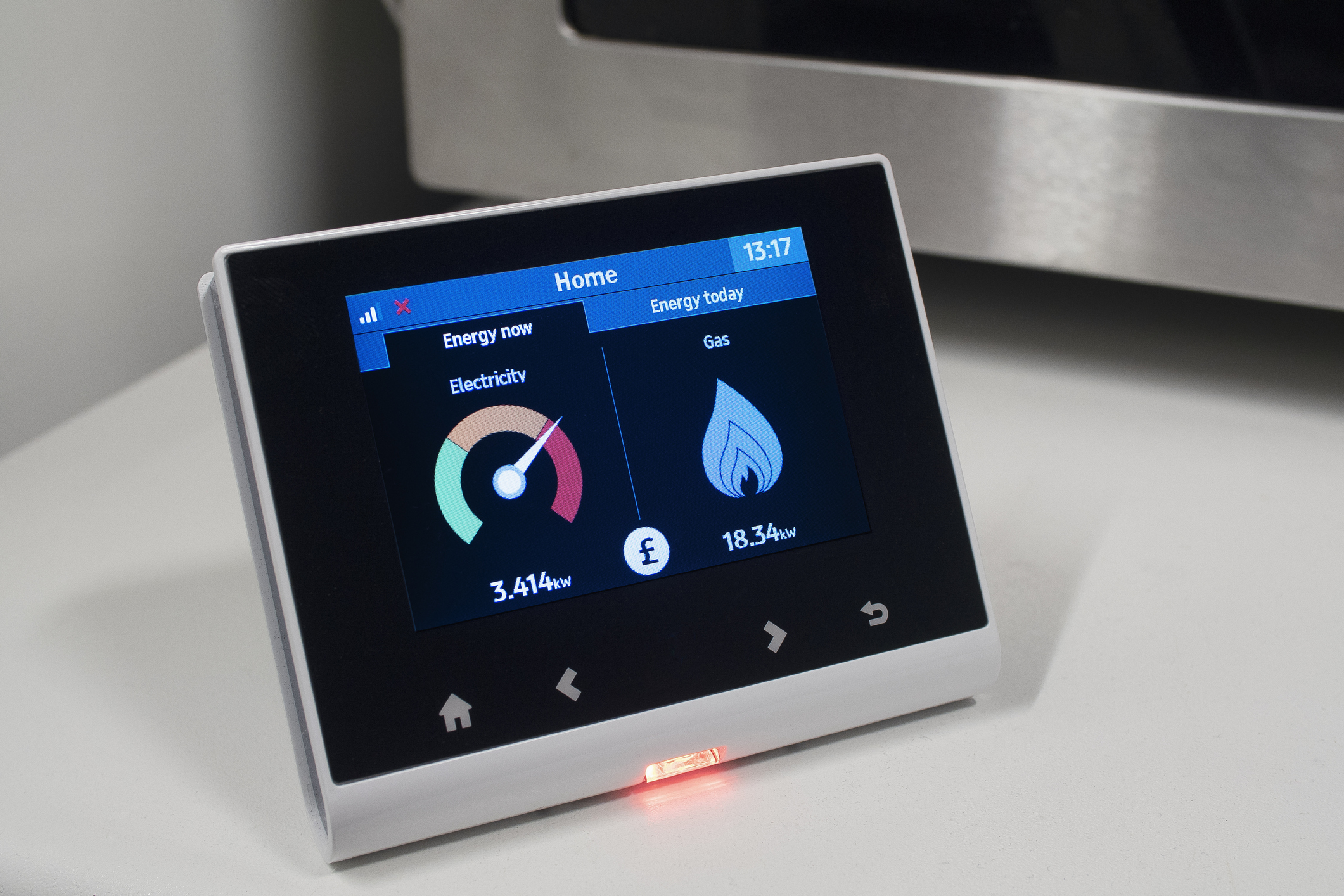Should you switch to a fixed energy tariff in 2026?
As energy prices remain volatile and far above pre-2022 levels, is now the time to look for a fixed energy tariff? We look at the latest gas and electricity deals

Sam Walker

Get the latest financial news, insights and expert analysis from our award-winning MoneyWeek team, to help you understand what really matters when it comes to your finances.
You are now subscribed
Your newsletter sign-up was successful
Want to add more newsletters?

Twice daily
MoneyWeek
Get the latest financial news, insights and expert analysis from our award-winning MoneyWeek team, to help you understand what really matters when it comes to your finances.

Four times a week
Look After My Bills
Sign up to our free money-saving newsletter, filled with the latest news and expert advice to help you find the best tips and deals for managing your bills. Start saving today!
Energy prices are predicted to drop over the course of 2026, as measures by the government mean household energy bills will fall by around £150 a year from April.
The energy price cap, which determines the maximum unit rate that a supplier can charge for energy, marginally rose at the beginning of 2026, bringing the average annual energy bill for a typical dual-fuel household paying by direct debit to £1,758.
Prices are forecast to fall to £1,620 in the second quarter of 2026, according to energy consultancy Cornwall Insight, who are well-regarded for the accuracy of their predictions.
MoneyWeek
Subscribe to MoneyWeek today and get your first six magazine issues absolutely FREE

Sign up to Money Morning
Don't miss the latest investment and personal finances news, market analysis, plus money-saving tips with our free twice-daily newsletter
Don't miss the latest investment and personal finances news, market analysis, plus money-saving tips with our free twice-daily newsletter
To eliminate the stress of worrying about quarterly fluctuations to the price cap, some billpayers choose to fix their energy tariff at a certain rate.
Fixing your bill can provide more security against future price hikes, allow you to pay a consistent unit rate for your energy, and could potentially save you some money.
On the other hand, you run the risk of fixing your energy bill at a higher level than you need to, meaning you could be forking out more for your energy than if you had stayed on the price cap.
Roughly 21 million households are currently on a fixed tariff, according to the latest data from Ofgem in April 2025.
But how exactly do fixed tariffs work, and are they a better option than the price cap in the current climate?
How much does a fixed energy tariff cost?
A fixed energy tariff locks in your rate for a fixed period, usually a year, meaning you’re shielded from any changes in the wholesale cost of energy.
A fixed energy tariff doesn’t fix what you pay, just the rate you are charged per unit of gas and electricity. So, like with the price cap, the more you use, the more you’ll have to pay.
Timed right, fixed deals can potentially save you hundreds of pounds a year compared to the price cap, if wholesale costs shoot up.
But, conversely, there is the risk energy prices will fall over the term of your fixed tariff, meaning you pay more than someone on the price cap.
In any case, you’ll want to make sure you shop around for the best rate. You can do this through price comparison sites like MoneySuperMarket, Go.Compare and MoneySavingExpert.com. A number of fixed deals currently on the market are almost 15% cheaper than the current price cap.
Following the announcement in the Autumn Budget that the government will knock around £150 off energy bills by cutting green levies, some on fixed deals have worried that the cut will not be passed on to them.
Energy minister Ed Miliband wrote to suppliers, urging them to pass the cut on to customers on fixed tariffs, and most have said they will – this includes major firms like British Gas, E.on, EDF, Octopus, Ovo, and many more.
It seems that most suppliers will pass on the £150 bill cut to fixed customers, but it may be worth contacting your supplier, or the one you are considering, to make sure that this is the case before committing to a fix.
Deals that are cheaper than the price cap
- Fuse Energy: December 2025 Fixed (12m) V5, 12 month fix. 14.7% less than the current price cap, open to new and existing customers, but comes with a £50 early exit fee per fuel.
- Outfox Energy: Merry Fix-Mas 2025 12M v2.0, 12 month fix. 13.6% less than the current price cap, open to new and existing customers, but comes with a £75 early exit fee per fuel.
- Ecotricity: EcoFixed – 1 Year Oct 25 v1, 12 month fix. 13.1% less than the current price cap, open to new and existing customers, but you must pay by direct debit and the deal includes a £75 early exit fee per fuel.
- So Energy: So Larch One Year - Green, 12 month fix. 12.8% less than the current price cap, open to new and existing customers but comes with £75 per fuel early exit fees and must be paid by direct debit.
Source: MoneySavingExpert.com (correct as of 1 January 2026).
Bear in mind, while these deals are widely available, there may be loyalty deals which are exclusive to existing customers. These can offer superior rates to those listed above. Check with your supplier to see if you can sign up for one of these tariffs.
Always read the fine print of any fixed tariff as well – some require you to have a smart meter, pay by a certain method or require you to sign up for other services to unlock the deal.
If you have an electric vehicle, there are specific tariffs available that could be cheaper than the deals mentioned above. We look at the best EV energy tariffs in a separate piece.
Should you fix your energy tariff?
Ultimately, whether a fixed tariff is for you is down to your appetite for risk.
Fixing offers you the certainty of knowing what you’ll pay per unit of gas and electricity rather than depending on the price cap which is subject to change.
Consultancy and research firm Cornwall Insight regularly makes predictions on what the price cap will be in the future.
Its latest forecast, from 31 December, suggests the April price cap will fall from £1,758 to £1,620 in April 2026 thanks to the government’s bill cut. Ofgem will announce the price for April to June on 25 February.
What will happen to energy prices beyond this is harder to predict, however if you sign up for a fixed tariff now well under the current price cap and ensure the £150 bill cut will be passed on to you, you could potentially make some savings over the long term.
Nathan Blackler, expert at Go.Compare Energy, said: “Fixed tariffs offer protection against energy market volatility and give peace of mind, especially for households with tight budgets or those who prefer financial stability.
“However, it’s not a one-size-fits-all solution. Fixed deals often come with higher exit fees, meaning that if you want to end your contract early you’ll have to pay a fee.
“Some fixed tariffs may also have higher rates than standard variable tariffs, particularly if energy prices fall during your contract, so you could end up paying more than those on a variable plan.”
What is the energy price cap?
The price cap sets the maximum amount that can be charged for standing charges and each unit of energy. It affects customers who are on a standard variable (also known as default) tariff.
While around 21 million households are on a fixed energy deal, about 34 million households are sitting on the energy price cap.
The price cap is reviewed on a quarterly basis. The unit rates for the current price cap (January to March) are shown below.
| Row 0 - Cell 0 | Electricity | Gas |
Unit cost (per kWh) | 27.69 pence | 5.93 pence |
Standing charge (daily) | 54.75 pence | 35.09 pence |
Source: Ofgem
These Ofgem figures are national averages. Your actual unit rates depend on where in the UK you live. You can find out more about prices in your area on the energy regulator's website.
Based on the above price cap figures, the typical annual bill is £1,758 from January to March for a dual-fuel household paying by direct debit.
This figure, quoted in pounds, shows what a bill could look like if the cap were to remain at the same level all year.
However, the price cap changes every three months and so billpayers on a standard variable rate will likely pay more or less than this thanks to price variations over the year.
Does the price cap impact fixed-rate tariffs?
Customers who have already locked into a fixed-rate tariff are not impacted by fluctuations in the energy price cap.
However, those who are shopping around for a new fixed tariff will find that prices are influenced by wider trends in the energy market – including how high or low the price cap is at the time.
Ofgem energy supplier switching rules
If you opt to change providers, suppliers have to complete customer switches within five working days (six if you enter into a contract after 5pm). Failure to do so will mean they have to pay affected customers compensation of £40.
If the supplier you’re moving to fails to switch you across in time, complain to them directly. Should they fail to pay you the compensation you are due, you can escalate your complaint to the Energy Ombudsman, which can resolve the dispute.
Bear in mind, if you’re on a fixed tariff and switch providers, you may incur an early exit fee if you’re moving before the end of the deal term.
Get the latest financial news, insights and expert analysis from our award-winning MoneyWeek team, to help you understand what really matters when it comes to your finances.

Daniel is a financial journalist at MoneyWeek, writing about personal finance, economics, property, politics, and investing.
He covers savings, political news and enjoys translating economic data into simple English, and explaining what it means for your wallet.
Daniel joined MoneyWeek in January 2025. He previously worked at The Economist in their Audience team and read history at Emmanuel College, Cambridge, specialising in the history of political thought.
In his free time, he likes reading, walking around Hampstead Heath, and cooking overambitious meals.
- Sam WalkerWriter
-
 Should you buy an active ETF?
Should you buy an active ETF?ETFs are often mischaracterised as passive products, but they can be a convenient way to add active management to your portfolio
-
 Power up your pension before 5 April – easy ways to save before the tax year end
Power up your pension before 5 April – easy ways to save before the tax year endWith the end of the tax year looming, pension savers currently have a window to review and maximise what’s going into their retirement funds – we look at how
-
 Winter Fuel Payment cut to hit ‘1.5 million’ pensioners - what support does your energy supplier offer?
Winter Fuel Payment cut to hit ‘1.5 million’ pensioners - what support does your energy supplier offer?Advice The Winter Fuel Payment is being scrapped for most pensioners this year. But you may be able to access extra support from your energy supplier. Here’s what’s on offer.
-
 What is the Ofgem energy price cap and what does it mean for your bills?
What is the Ofgem energy price cap and what does it mean for your bills?The Ofgem energy price cap is reviewed every three months. What is its current level and how does it affect bills?
-
 Rent prices continue to rise but demand slows as cost of living pressures bite
Rent prices continue to rise but demand slows as cost of living pressures biteNews The latest data from Zoopla shows rental growth is expected to slow to 5% as demand decreases
-
 The best credit cards with 0% on purchases
The best credit cards with 0% on purchasesAdvice 0% credit cards are a great way to spread the cost of big purchases - we flag the best deals available now.
-
 Competition watchdog warns drivers still overcharged on fuel prices
Competition watchdog warns drivers still overcharged on fuel pricesAdvice The competition watchdog has revealed that motorists are still paying too much for fuel, a year after its initial investigation. How can you save on fuel costs?
-
 Wood-burning stove vs central heating ‒ which is cheaper?
Wood-burning stove vs central heating ‒ which is cheaper?Advice After energy costs increased again, we compare wood-burning stove vs central heating to find out which is cheaper for your home
-
 Is it cheaper to leave the heating on low all day?
Is it cheaper to leave the heating on low all day?Advice The weather is getting colder and energy bills are rising, but is it really cheaper to leave the heating on low all day or should you only turn it on when you need it?
-
 How much does it cost to run an electric oven?
How much does it cost to run an electric oven?Advice We explain how much making a jacket potato, casserole or pizza in the oven costs you.